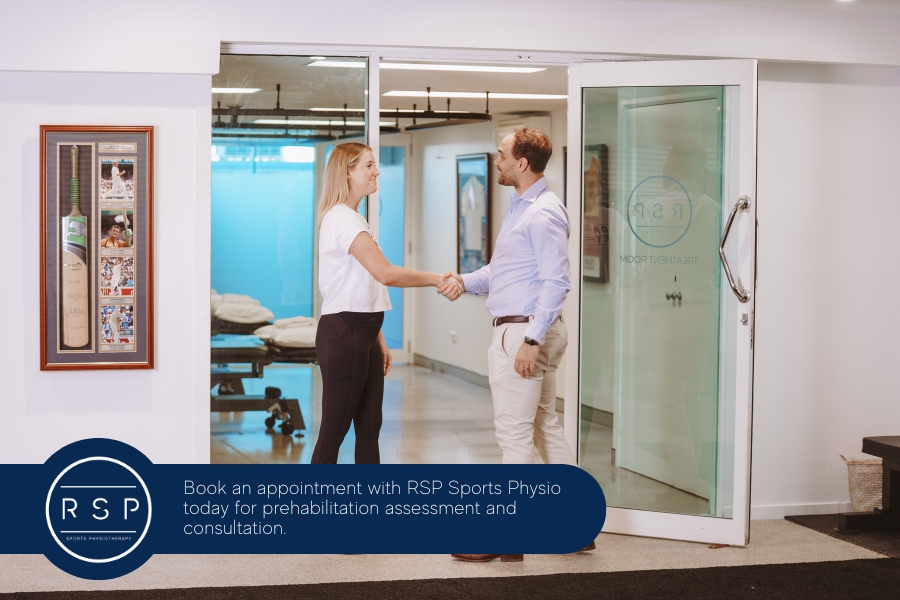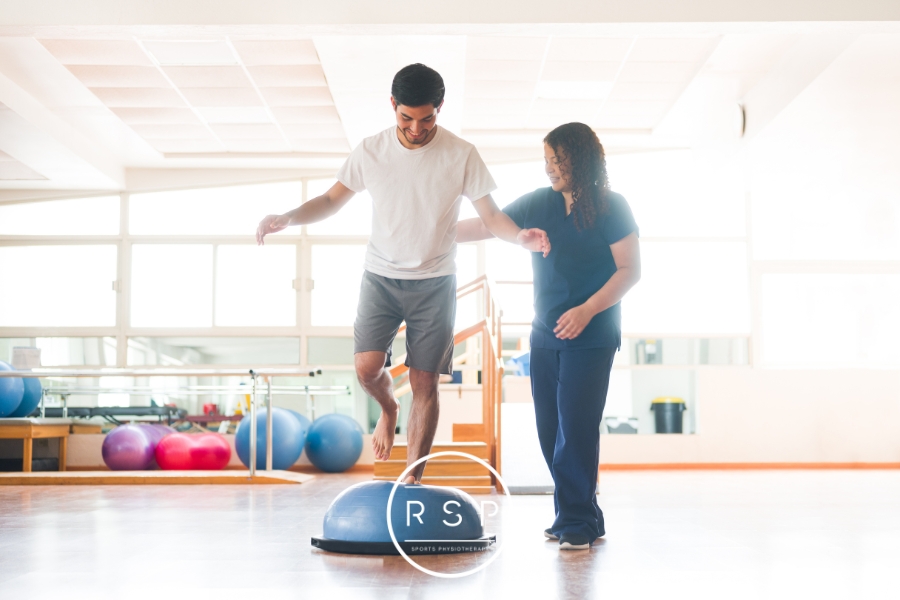Preparing for surgery can be a nerve-wracking experience. You may be wondering if there is anything you can do beforehand to improve your recovery and overall outcomes. The answer is yes, and it’s called prehabilitation or prehab for short.
Prehab is a relatively new concept in the medical field, but its benefits are becoming increasingly recognised. It involves exercising before surgery to optimise your physical and mental health, ultimately improving your ability to recover and bounce back after the procedure.
While surgery is often seen as the main event, prehab is crucial in ensuring a successful outcome. By preparing your body and mind, you can minimise the potential risks and complications associated with surgery, enhance your overall well-being, and speed up your recovery.
What is prehabilitation?
Prehabilitation is described as enhancing a patient’s functional capabilities before surgery so that the patient can survive any postoperative inactivity and accompanying decrease. In other words, to get you in better physical shape before an operation.
Exercise training was the primary focus of early research on therapies to improve functional capacity before surgery. The emphasis in prehabilitation is however shifting towards a multimodal approach (i.e., exercise training, dietary assistance, psychological support, and lifestyle coaching).
Generally, the more fit and active you are before surgery, the more likely you are to preserve a higher degree of function afterwards. Before your procedure, you must identify and address any functional deficiencies.
What does prehab entail?
Prehab entails strengthening the body and improving functional capabilities, range of motion, balance and stamina through cardio, resistance, flexibility, and functional training.
Prehab includes guidance on nutrition and hydration for optimal health pre-surgery. Nutritional advice should include a focus on foods that are high in protein, complex carbohydrates, healthy fats, other nutrients important for healing and supplementation. The diet should also be tailored to the individual’s needs and lifestyle prior to their surgery.
Another critical component is teaching you what to do and what not to do before and after surgery. You’ll work with a physiotherapist during prehab to develop a personalised plan based on your orthopaedic surgeon’s goals.
A prehabilitation program allows you to develop a relationship with your physiotherapist and become acquainted with the post-operative exercises before surgery, making the transition into post-surgical rehabilitation simple and seamless.
Advantages of prehabilitation
- You are more likely be able to maintain or improve your physical ability and fitness.
- The likelihood of complications after treatment and surgery decreases.
- Prehab reduces pain before surgery and helps you get back on your feet faster afterwards.
- Additionally, you will be able to recover and return to your previous level of fitness more quickly after surgery or other treatments.
The benefits of prehabilitation
- Reduce joint swelling and edema
- Restore normal range of motion (ROM)
- Improve lower extremity strength and coordination to regain a normal gait (walking) pattern
- Improved flexibility
- Improved core stability
- Increased strength
- Increased muscle endurance and power
What is the optimal timing for prehabilitation before surgery?
It’s essential to consider the correlation between program adherence and effectiveness to establish the ideal time frame for a prehabilitation program. A prehabilitation program lasting 4 to 8 weeks is typically the most beneficial when the underlying condition allows.
In general, the earlier a prehabilitation program can begin, the better. Depending on the individual’s condition and surgery type, this could mean starting a program several months before surgery.

Final thoughts on the importance of prehabilitation
Prehabilitation is a crucial step in preparing for surgery. By engaging in exercises and activities that improve physical and mental health, patients can reduce the risks associated with surgery and enjoy a faster recovery.
Prehab can help patients become stronger, cope better with surgery’s emotional and physical challenges, increase range of motion, reduce pain, lower the risk of complications, and improve recovery time.
It also helps build mental grit and resilience, especially for those with preexisting anxiety or fear of surgery. Prehab can lead to a more successful outcome and reduce stress levels before and after the operation.




